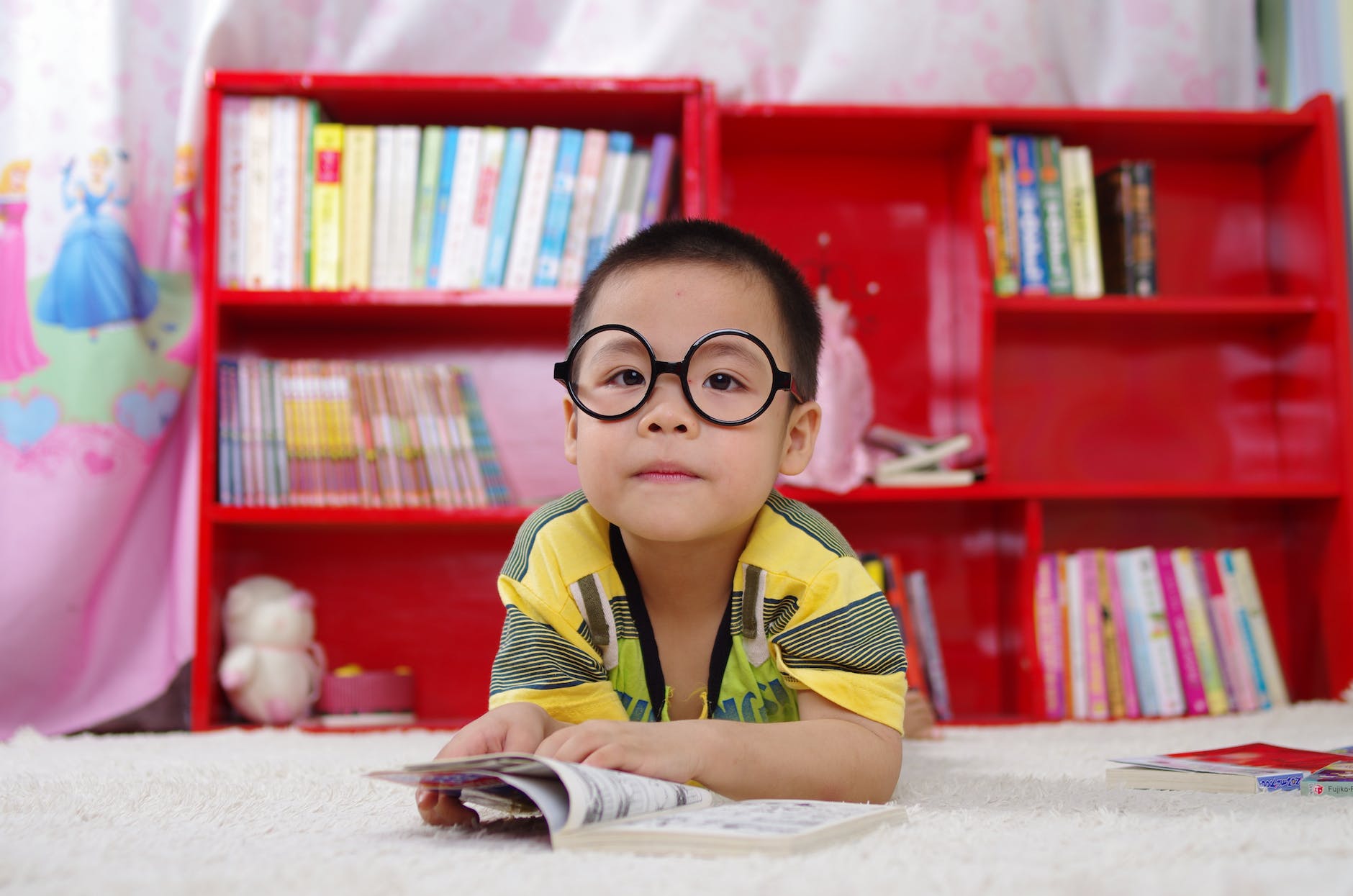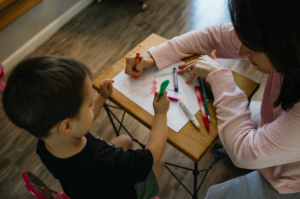
Photo by Pixabay on <a href="https://www.pexels.com/photo/adorable-blur-bookcase-books-261895/" rel="nofollow">Pexels.com</a>
Are you looking for ways to optimize your child’s learning process? If so, you’ve come to the right place. In this blog post, we will be exploring seven strategies that can help to support and enhance the educational journey of your children. We will cover everything from finding the right study environment to setting a productive daily schedule and more! So let’s get started on this journey of optimizing your children’s learning process.
A place to study
Creating a dedicated space for your child to study is essential to their learning process. Not only will having a designated place for studying allow your child to focus on the task at hand, but it will also help them to be more organized and productive.
When it comes to designing a place to study, it’s important to think about ergonomics and comfort. You want your child to be able to work without being distracted by discomfort. Consider investing in a comfortable desk and chair that are adjustable to suit their needs. It should also have plenty of storage for books and supplies. Having a few shelves or even a filing cabinet is ideal for keeping things organized and neat.
Quiet time
It is important to provide a quiet space for your child to study and focus on their schoolwork. Providing a quiet environment helps them concentrate and reduces distractions, allowing them to learn better.
You can purchase noise-canceling headphones or earplugs to wear while studying to reduce noise distractions. You can also create a designated “quiet time” or “study time” when no one else in the house is allowed to make loud noises. If possible, try to locate the study area away from any noise sources such as TV, washing machines, and other appliances. Additionally, make sure to switch off any mobile devices or turn on silent mode during this time.
Change of horizon
A change of horizon can be an effective way to enhance your child’s learning process. It is often said that a change of scenery helps to break up the monotony of studying and can help your child to stay more engaged and focused. By offering a new and interesting learning decor, you can help promote better understanding and long-term knowledge retention.
One great way to provide a change of horizon is to use a garden gazebo, which is a great outdoor addition to the home, https://ericabuteau.com/2023/01/09/exterior-additions-to-consider-when-summer-comes/. Garden gazebos come in a variety of sizes and styles, so you can find one that fits your space and budget. They are perfect for providing a unique learning environment. A garden gazebo offers protection from the elements while also providing a pleasant atmosphere. The natural light and fresh air help to promote concentration, while the sound of birds or other wildlife can help create a peaceful learning atmosphere.
Finding educative material outside of school
In today’s world, there are many educational material sources outside the traditional classroom. Taking advantage of these learning opportunities can give your child an edge in their studies, as well as provide a change of pace from the traditional classroom setting.
Exploring learning materials from other sources helps your child become well-rounded in their education and skills. It encourages them to think outside of the box and to think creatively about new concepts. As an added bonus, finding educational material outside of school opens up new interests for your child that they may not have otherwise discovered.
In addition to giving your child a broader view of the topics they’re studying, finding educational material outside of school can also provide interesting ways to engage with the subject matter. Online courses, virtual field trips, and books by experts in the field are just a few examples of educational materials your child can access away from the traditional classroom. These materials often present information in an engaging way, helping to boost your child’s motivation and interest in the subject.
There are numerous websites and apps that provide fun and engaging educational material, such as this one www.generationgenius.com/videolessons/energy-transfer-video-for-kids/. From language learning programs to interactive science games, your child is sure to find something that piques their interest.
A productivity schedule
Creating a learning schedule for your child can be an effective way to help them stay organized and be more productive. A productive learning schedule can provide structure, focus, and consistency in their daily activities, allowing them to make the most of their time. Here are some tips for creating a productive learning schedule for your child:
- Start by talking to your child about their goals.
- Break down big tasks into smaller steps.
- Give your child breaks throughout the day.
By creating a productive learning schedule for your child, you can help them make the most of their time and ensure that they stay organized and focused on reaching their goals.
Healthy brain food
Eating the right kinds of foods can improve concentration and memory, making it easier to process and retain information. The best foods for your child’s brain health are high in essential vitamins and minerals.
Start by incorporating plenty of fresh fruits and vegetables into their daily diet. Fruits like apples, oranges, and bananas are loaded with fiber, vitamin C, and antioxidants which can help improve cognitive function. Leafy greens such as kale, spinach, and collard greens provide essential nutrients like iron, folate, and lutein, all of which have been linked to improved mental performance.
Bedtime routine
Having a healthy bedtime routine is essential to ensure your child gets the rest they need to be productive during the day. This is especially important during the school year when they need to be able to focus and concentrate on their studies.
Creating a bedtime routine will help your child’s mental and physical health, helping them become more productive learners. A consistent sleep schedule will also help regulate their energy levels, which can have a direct effect on how they learn and behave. Sleep is a crucial factor in the learning process, as lack of sleep can affect concentration and memory.
Hopefully, these few tips can help you support your child’s learning process and make acquiring new skills a walk in the park!


